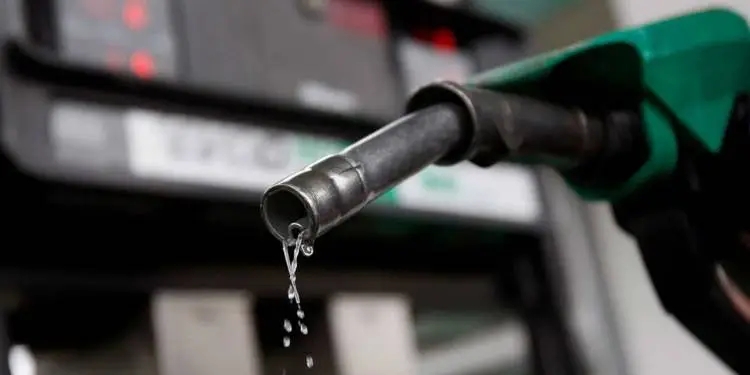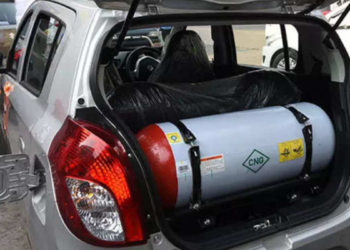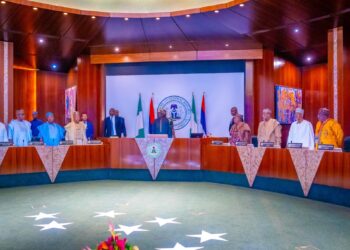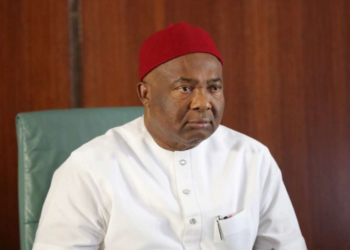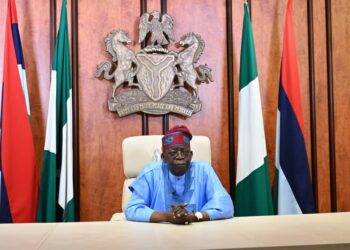Article summary
- Nigeria’s Midstream and Downstream Petroleum Regulatory Authority (NMDPRA) has ended the era of fixed fuel prices in the country.
- The NMDPRA Chief Executive, Mr. Farouk Ahmed, announced the move, stating that the pricing of Premium Motor Spirit (PMS) will now be determined by the free market.
- President Bola Tinubu’s inauguration speech confirmed the discontinuation of the fuel subsidy regime in Nigeria, which has led to significant fuel price increases exceeding N500 across the country.
- The Central Bank of Nigeria will not offer foreign exchange for fuel imports, but importers can source their Fx from anywhere in the world.
Nigeria’s Midstream and Downstream Petroleum Regulatory Authority (NMDPRA) has declared an end to the era of fixed fuel prices in the country.
The Authority’s Chief Executive, Mr. Farouk Ahmed, announced this development in Abuja on Friday, stating that the pricing of Premium Motor Spirit (PMS) will now be determined by the free market.
President Bola Tinubu in his inauguration speech this week announced the end of the fuel subsidy regime in Nigeria which has seen fuel prices rise over N500 across the country.
Deregulation
The Oil industry regulator revealed that there is a new liberalized market regime for fuel prices in Nigeria, adding:
- “As far as we are concerned in the NMDPRA, this is not like before when the PPPRA fixes the price; in a deregulated market, it is the market force that dictates the price.”
Open Market
The NMDPRA also proposed that Nigeria’s retail energy market is now open for everybody that would import as far as they met all the requirements, adding:
- “So, it is not about the Nigerian National Petroleum Company Limited (NNPC Ltd) alone.
- “We put the regulation in place, we make sure quality control is complied with, we make sure the product is there and we give licence to the prospective importer.
- “We make sure we guide the operations of everyone in the sector whether at the depot or wherever the product is but we will not put a cap to say this is what the price must be.”
NNPC’s role
He noted that the N NPC’s role is to fix the prices of the petrol it imported and not take over the responsibilities of the Authority, saying:
- “In the case of the NNPC, the organisation is the sole importer at this point. We told the NNPC to recover its costs because they know how much it cost them to import the product and sell it.
- “Of course, we also know how much shipping, offshore, ex-depot, and ex-pump are. But we cannot tell them to sell at a price because the market is deregulated.
The NMDPRA added the Federal Government has officially scrapped petroleum equalisation as well as the national transport allowance, adding that they alongside the Consumer Protection Commission (FCCPC) would mount aggressive monitoring of activities in the downstream sector to prevent profiteering by petroleum marketers.
FX sourcing
NMDPRA also disclosed that marketers are now free to source their foreign exchange anywhere around the world to import petroleum products and recover their costs without impediments, citing that the CBN would not give dollars to anyone because of the open market, adding that anyone willing to import should get the dollars from anywhere to import.
- “Those marketers can source their forex from anywhere is the beauty of the liberalised market that the NMDPRA has introduced based on the provision of the law”.
- “Based on this, the price would no longer be static but rather depend on the international price of the gasoline market.
- “This did not imply that marketers could sell at any price.”
- “The market structure will dictate the price swings at every point in time.”
What this means
The declaration by the oil regulator means Nigeria’s fuel markets would officially be decided by the invisible hand of the market and be a lot more linked with global and international prices. However, more clarity is needed on the import conditions for sourcing foreign exchange as the lack of FX for energy traders in Nigeria may worsen Nigeria’s rising energy poverty.

